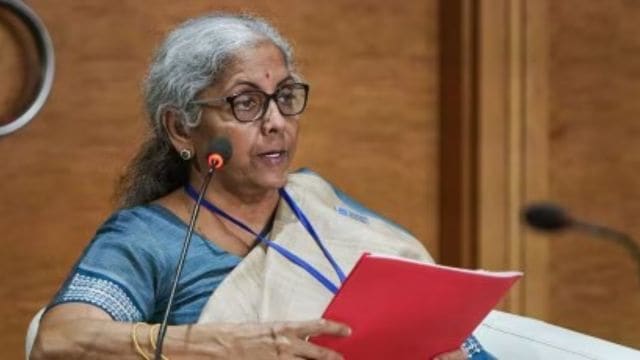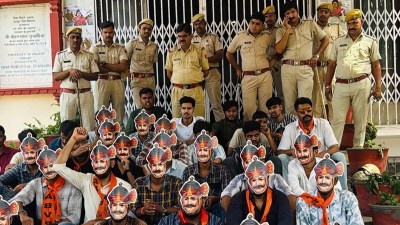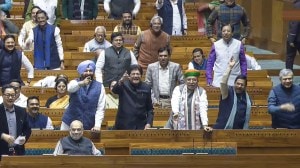India needs a lot of big and world-class banks, will sit and discuss with RBI: FM
The finance minister said a lot of prior work is needed before a final decision is taken, but the work in this direction has already commenced.
 Nirmala Sitharaman said a lot of prior work is needed before a final decision is taken, but the work in this direction has already commenced. (File photo)
Nirmala Sitharaman said a lot of prior work is needed before a final decision is taken, but the work in this direction has already commenced. (File photo)Finance Minister Nirmala Sitharaman on Thursday said that the government is in discussions with the Reserve Bank of India (RBI) for the creation of an ecosystem for nurturing world-class banks.
“India needs a lot of big and world-class banks, and for that, of course, we will have to sit and talk with the Reserve Bank and also with the banks themselves to see how they want to take it forward and also discuss with the RBI about how they have an idea of building larger banks,” Sitharaman said when asked if the government was looking at further consolidation in the banking sector. She was speaking at a Banking and Economics Conclave organised by State Bank of India (SBI).
The Finance Minister said a lot of prior work is needed before a final decision is taken, but the work in this direction has already commenced.
“We are discussing with the RBI and banks. It is not by creating from among those which exist today just by amalgamation… that can also be one of the routes, but you need an ecosystem and also an environment in which more banks can operate and operate to grow. That environment is actually well established in India but I need it to be a bit more dynamic. Some work is happening on it,” Sitharaman said.
The first phase of PSB consolidation began in 2017 when five of its associate banks and Bharatiya Mahila Bank were merged with the State Bank of India. In 2019, Vijaya Bank and Dena Bank were merged with the Bank of Baroda. This was followed by the merger of 10 PSBs into four large banks in 2020.
When asked about India’s growth rate momentum amid prolonged uncertainty and rising protectionism, Sitharaman said, “I don’t want to sound too ambitious or also giving a statement of overconfidence, but I can very clearly see that India has shown its capability, markets and also the way in which, in spite of the global uncertainties, people of India have responded to the next generation GST reforms.”
The government implemented next-gen goods and services tax (GST) reforms effective September 22, with a simplified two-slab structure of 5 per cent and 18 per cent. The move has helped in spurring domestic demand.
“I think (the impact of) GST (reforms) shows in terms of small, medium and large purchases, the readiness of the people to respond to the public policy. Indians have always responded to governments which are responsive and I must thank the GST Council for having seen this point in unanimously coming out with next generation (GST) reforms and that is showcasing how the economy is bringing out the best in it,” the Finance Minister said.
Driven by lower GST rates and robust festive demand, consumer spending witnessed a rise, with bank credit surging by over 100 per cent during the September-October 2025 period compared to the same period a year ago.
Between September 5 and October 17, 2025, bank loans increased by Rs 4.1 lakh crore to Rs 192.19 lakh crore from
Rs 188 lakh crore, the RBI’s fortnightly data showed. During the coinciding festive period of the previous year, advances had increased by Rs 1.91 lakh crore to Rs 172.38 lakh crore in the fortnight ended October 18, 2024, from Rs 170.47 lakh crore during the fortnight ended September 6, 2024, the data showed.
On private capex, Sitharaman said earlier the industry used to say that the consumption outlook was uncertain, but from September 22, there are signs of its strengthening, indicating growing demand.
“It was waiting to come out like an arc before you. It has come out and I am also seeing a good many private sector capacity building and also equally credit going out of banks. So, it has kickstarted the biggest virtuous cycle for India,” the Finance Minister added.
- 01
- 02
- 03
- 04
- 05































